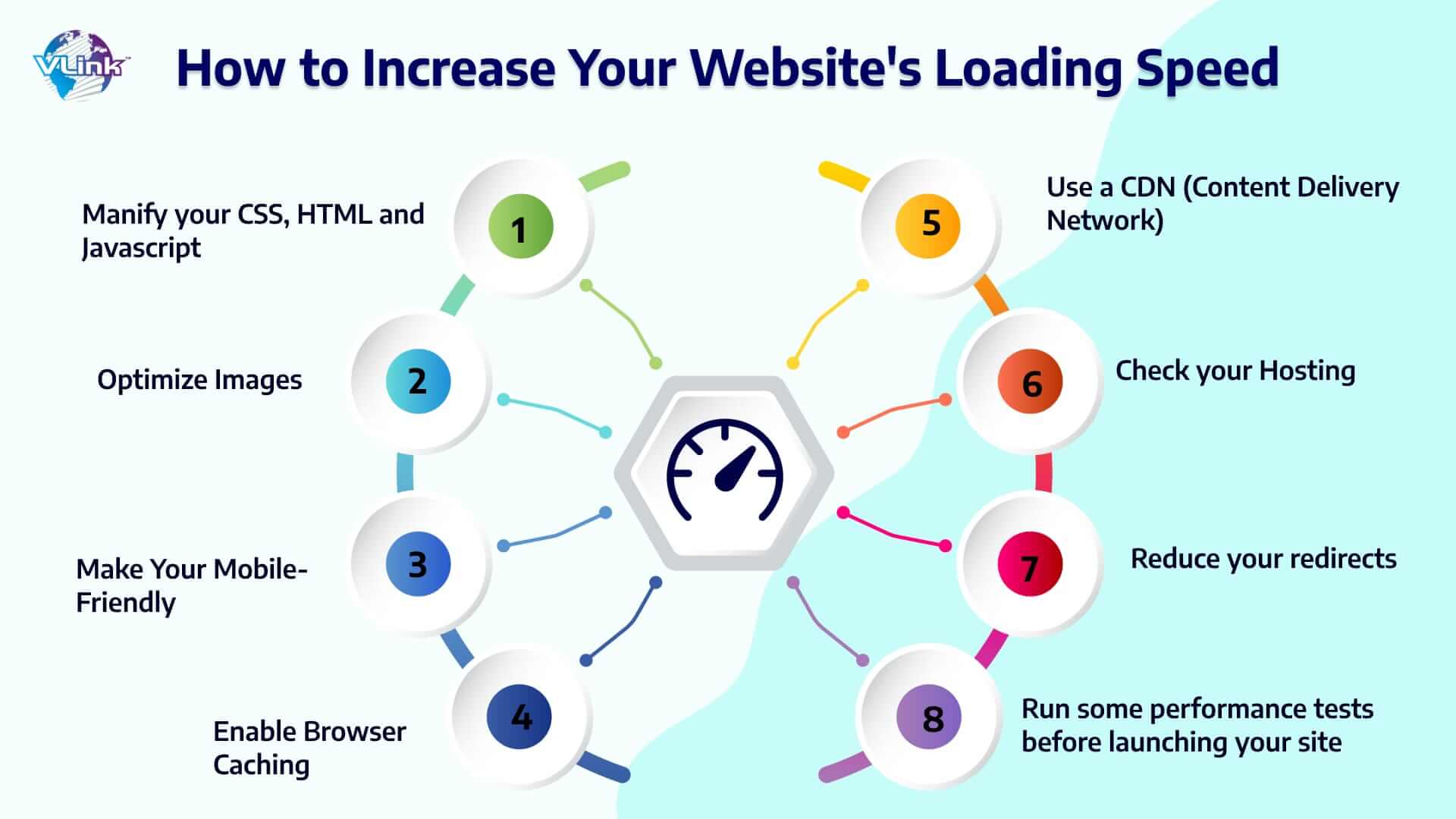Improving website loading speed with hosting is essential. Fast websites enhance user experience and boost search rankings.
Website loading speed is crucial for user satisfaction and SEO. Slow-loading pages can frustrate visitors and drive them away. One effective way to improve loading speed is by optimizing your hosting service. The right hosting can make a significant difference in how quickly your website loads.
This blog post will explore how hosting impacts loading speed and provide tips on selecting the best hosting solutions. Understanding these factors will help you create a faster, more efficient website that keeps users engaged and ranks well on search engines.

Credit: www.accuwebhosting.com
Choosing The Right Hosting Plan
Choosing the right hosting plan is crucial for improving your website’s loading speed. The hosting plan you choose can have a significant impact on your site’s performance. Let’s explore the different types of hosting plans available.
Shared Vs. Dedicated Hosting
Shared hosting means your website shares server resources with other websites. This can lead to slower loading times during peak traffic periods. It is often cheaper but less reliable.
Dedicated hosting offers an entire server just for your website. This means better performance and faster loading speeds. It is more expensive but worth the investment for high-traffic sites.
| Feature | Shared Hosting | Dedicated Hosting |
|---|---|---|
| Cost | Low | High |
| Performance | Moderate | High |
| Server Resources | Shared | Exclusive |
Benefits Of Vps Hosting
VPS hosting stands for Virtual Private Server hosting. It combines the benefits of both shared and dedicated hosting. With VPS, your website gets its own dedicated portion of a server.
- Better performance compared to shared hosting.
- More affordable than dedicated hosting.
- Greater control over server settings.
- Scalable resources as your website grows.
VPS hosting is an excellent option for medium-sized websites. It balances cost and performance effectively. Many businesses find VPS to be the best fit for their needs.
Evaluating Hosting Providers
Evaluating hosting providers is crucial for improving your website loading speed. The right hosting provider can significantly boost your site’s performance. Before making a decision, consider various factors. Each factor plays a critical role in ensuring a fast, reliable website.
Reputation And Reviews
Check the reputation of hosting providers. Look for customer reviews. Positive reviews indicate reliable service. Negative reviews highlight potential issues. Ensure the provider has a good track record. A strong reputation often means dependable performance.
Uptime And Reliability
Uptime is essential for website speed. Choose a provider with high uptime guarantees. Aim for at least 99.9% uptime. This ensures your site is accessible most of the time. Reliable hosting reduces downtime. Downtime can negatively impact your website speed and user experience.
Optimizing Server Location
Optimizing server location is crucial for improving website loading speed. When your server is closer to the user, the data travels a shorter distance. This reduces latency and speeds up the loading time. Let’s explore two key aspects of optimizing server location: geographical proximity and content delivery networks.
Geographical Proximity
Server location affects how quickly data reaches the user. If your server is far from your audience, it takes longer for data to travel. Choose a server close to your main audience. This simple change can reduce loading times significantly.
For example, if most of your users are in Europe, select a server in Europe. This minimizes the distance data must travel. It ensures your website loads faster for European users.
Content Delivery Networks
Content Delivery Networks (CDNs) help distribute your content globally. CDNs store copies of your website on multiple servers around the world. When a user visits your site, the CDN delivers content from the nearest server. This reduces loading times by decreasing the distance data travels.
CDNs also help balance traffic loads. If one server is busy, the CDN can use another server to deliver content. This ensures your website remains fast even during high traffic periods.
Using a CDN is a great way to enhance your website’s speed and reliability. It ensures your users get a fast experience no matter where they are located.
Utilizing Caching Mechanisms
Improving website loading speed is crucial. One effective way is utilizing caching mechanisms. Caching helps store parts of your website for faster access. This reduces the time needed to load pages. There are two types of caching mechanisms: browser caching and server-side caching. Let’s explore both.
Browser Caching
Browser caching stores website files in a user’s browser. This means repeat visitors load your site faster. Common files cached include images, CSS, and JavaScript. By setting expiration dates, you control how long these files stay cached. This reduces the number of requests sent to your server.
To enable browser caching, adjust your HTTP headers. You can do this using .htaccess for Apache servers. For Nginx servers, use the configuration file. Many caching plugins also offer browser caching options. Choose one that fits your needs.
Server-side Caching
Server-side caching stores website data on the server. This reduces the load time for database queries and page generation. Types include object caching, page caching, and opcode caching. Each type has specific benefits.
Object caching stores database query results. This speeds up data retrieval for future requests. Page caching stores fully rendered HTML pages. This reduces the time to generate pages on the fly. Opcode caching stores precompiled PHP code. This speeds up the execution of PHP scripts.
To enable server-side caching, use a caching plugin or service. Popular options include Redis, Memcached, and Varnish. Choose one based on your hosting environment and website needs. Implementing server-side caching can greatly improve your website’s performance.
Leveraging Content Delivery Networks (cdns)
Leveraging Content Delivery Networks (CDNs) can significantly boost your website’s loading speed. CDNs distribute your content across multiple servers worldwide. This ensures that users access your site quickly, no matter their location. Faster loading times improve user experience and can boost your search engine rankings.
How Cdns Work
CDNs operate by caching your website’s content. This content is stored on a network of servers spread across different geographical locations. When a user visits your website, the CDN delivers content from the nearest server. This reduces the distance data travels, speeding up the load time. CDNs handle images, videos, and other heavy content. This reduces the strain on your main server.
Top Cdn Providers
Several CDN providers offer reliable services. Cloudflare is a popular choice, known for its robust security features. Another option is Akamai, which is used by many large companies. Amazon CloudFront integrates well with AWS services. Fastly is ideal for websites with dynamic content. Finally, KeyCDN offers affordable plans for smaller websites.

Credit: vlinkinfo.com
Enhancing Database Performance
Enhancing database performance is crucial for improving website loading speed. A well-optimized database can make your website faster and more efficient. This section will cover key areas to focus on to enhance your database performance.
Database Optimization
Database optimization is the process of improving the efficiency of your database. It involves various techniques to reduce load times and increase speed. Regularly clean up unused data. This will keep your database lean and fast. Remove redundant indexes as they can slow down the database. Ensure your tables are properly indexed. Indexing helps in quick data retrieval.
Another important step is to optimize your database tables. Many database systems offer tools for table optimization. Use these tools to defragment tables and reclaim unused space. This will improve performance significantly. Also, consider using caching for frequently accessed data. Caching can reduce the load on the database by storing data temporarily.
Efficient Queries
Writing efficient queries is essential for a fast database. Efficient queries fetch data quickly and use fewer resources. Avoid using SELECT in your queries. Instead, specify only the columns you need. This reduces the amount of data processed.
Use JOIN operations wisely. Poorly written JOINs can slow down your database. Always use the most specific filters first. This reduces the number of rows processed. Test your queries using real data. Monitor their performance and make necessary adjustments.
Consider using stored procedures for complex queries. Stored procedures are precompiled and can run faster. They also help in maintaining consistency and security. Keep your queries simple and avoid nested queries. Simplifying your queries will improve their execution speed.
Monitoring And Maintenance
To improve website loading speed, monitoring and maintenance are crucial. Regular checks help to spot and fix issues quickly. They ensure your website runs smoothly and efficiently.
Regular Performance Checks
Regular performance checks help keep your website fast. They involve testing load times and server response. Identify slow areas and optimize them. Regular checks prevent small issues from becoming big problems. They ensure your site remains fast for users.
Automated Monitoring Tools
Automated monitoring tools can make maintenance easier. These tools check your website’s performance 24/7. They alert you if there are any problems. This allows for quick fixes, ensuring minimal downtime. Automated tools save time and keep your site running smoothly. They are essential for maintaining a fast website.

Credit: fastercapital.com
Securing The Hosting Environment
Improving website loading speed is crucial for user experience. One key aspect is securing the hosting environment. Ensuring a secure environment not only protects your data but also optimizes performance. This section will cover essential steps in securing your hosting environment.
Ssl Certificates
SSL certificates are vital for a secure website. They encrypt data between your server and users, protecting sensitive information. Websites with SSL certificates display HTTPS in the URL. This improves trust and can boost your search engine ranking.
Here are the benefits of SSL certificates:
- Encrypts data
- Builds user trust
- Boosts SEO
Regular Security Updates
Keeping your hosting environment updated is essential. Regular updates fix security vulnerabilities and improve performance. It’s crucial to install updates for:
- Operating systems
- Server software
- Content Management Systems (CMS)
Set up automated updates or reminders to ensure your environment is always secure. A secure environment enhances loading speed by reducing the risk of attacks and downtime.
Frequently Asked Questions
How Does Hosting Affect Website Loading Speed?
Hosting directly impacts your website’s speed. Quality hosting ensures faster server response times, reducing loading times. Choose a reliable hosting provider.
What Is The Best Hosting Type For Speed?
VPS and dedicated hosting are best for speed. They offer more resources and better performance than shared hosting. Invest in them.
Can I Improve Loading Speed Without Changing Hosting?
Yes, optimizing images, using a CDN, and enabling caching can improve speed. These methods enhance performance without switching hosts.
How Does Server Location Impact Speed?
Server location affects loading speed. Closer servers reduce latency and improve loading times. Choose a server near your target audience.
Conclusion
Choosing the right hosting improves your website’s loading speed. Fast websites attract more visitors. They also improve user experience. Slow loading drives users away. This affects your site’s success. Good hosting is a key factor. It ensures your site loads quickly.
Invest in quality hosting. Your website’s speed will thank you. Remember, every second counts. Keep your audience happy and engaged. Fast loading sites make a big difference. Improve your website today. Enjoy the benefits of a speedy site.







